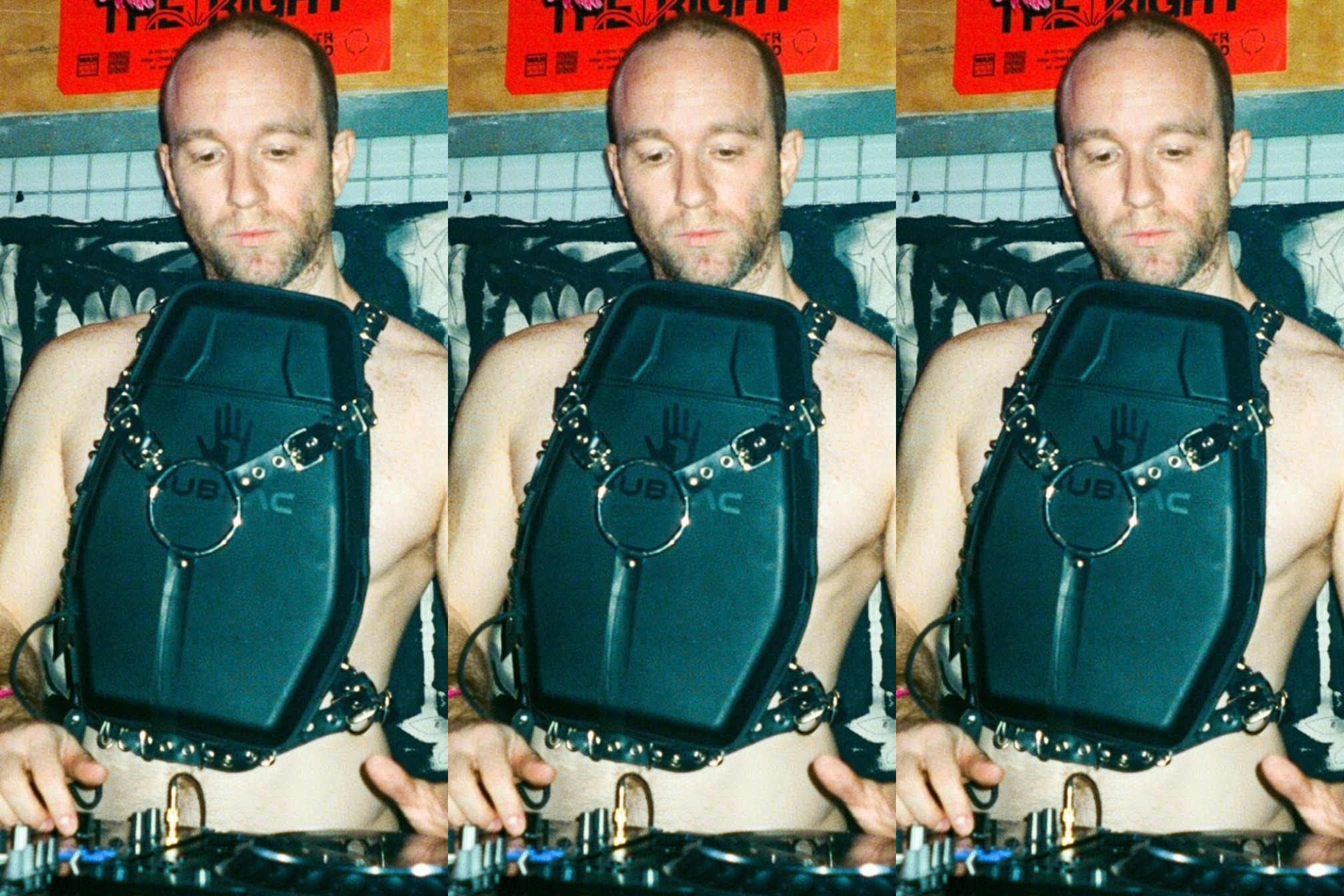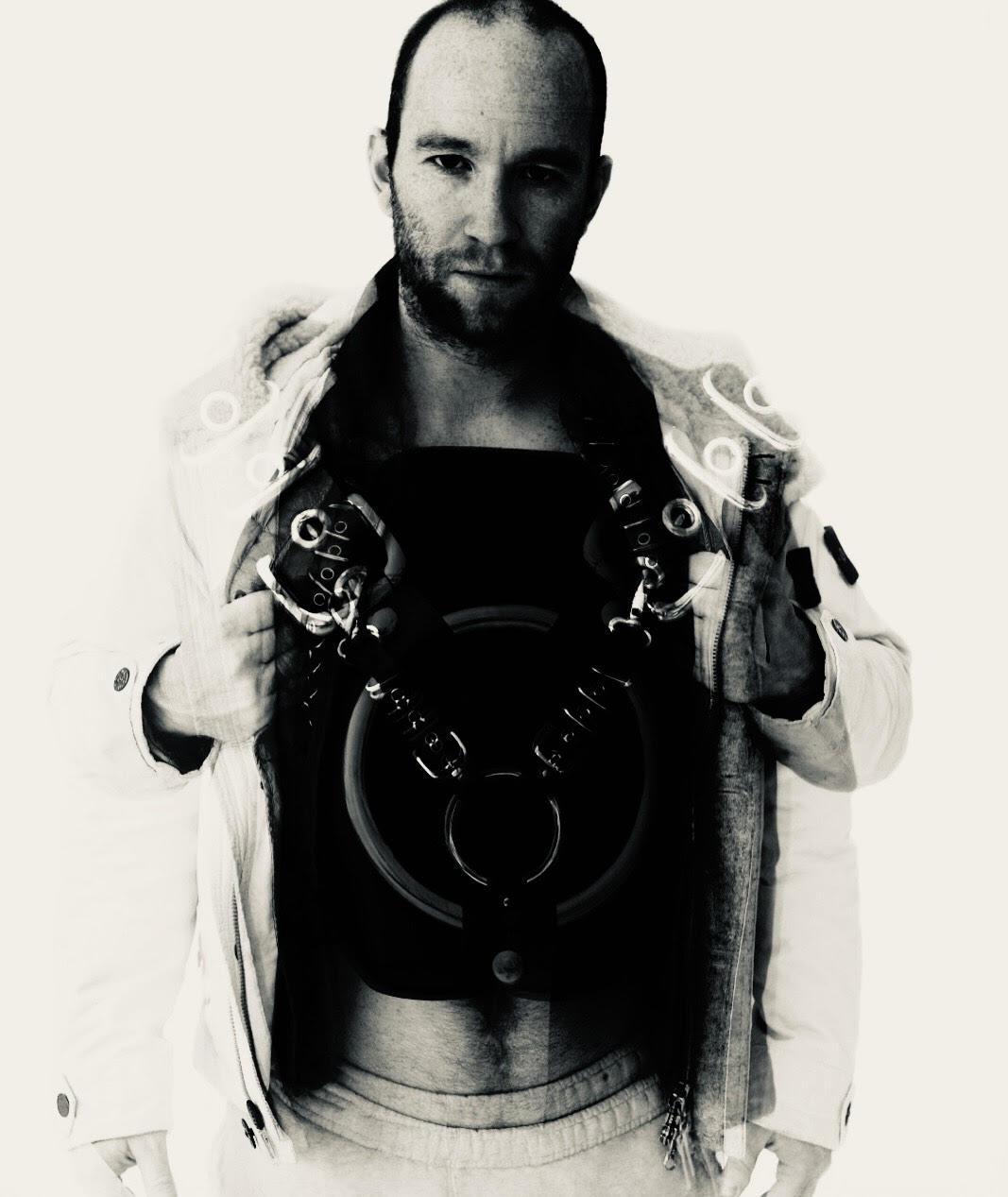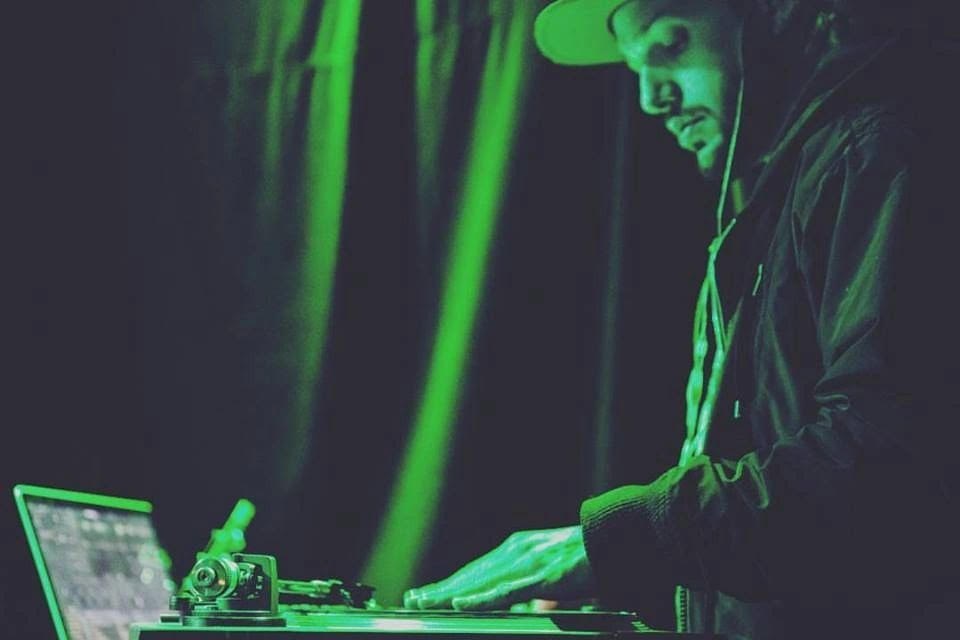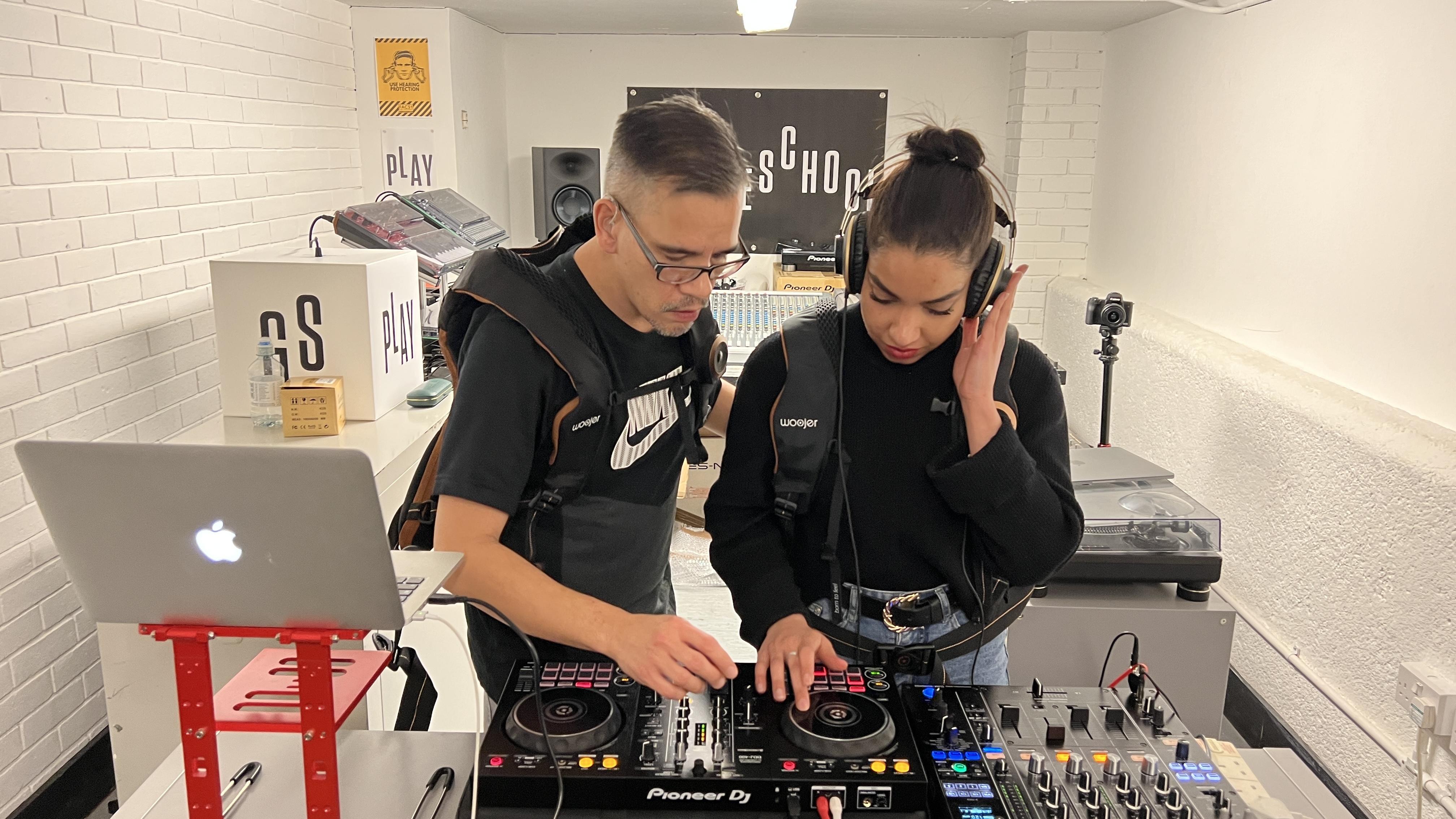 Features
Features
“Frequencies I’d never felt before”: How deaf DJs are revolutionising the club experience
Becky Buckle speaks to Troi Lee, KIKAZARU & Robbie Wilde on tech, crowds & overcoming music industry obstacles
Nightclubs for many are a place of togetherness, where clubbers can come together and dance. This is no different for the deaf community, who have always been a part of the scene —moving to the heavy bass of a soundsystem while enjoying the bright lights of a smokey venue.
Though what could be perceived as an environment that would be pretty reliant on sound, a nightclub is a familiar space for those with hearing difficulties - the music is so loud that most of us can't communicate with each other verbally anyway, so we have adapted our own "in-club sign language" — think about it, the hand gestures you use when asking your mates if they want a drink? or to go out for a ciggie? This levelling of the playing field between the hearing and the deaf is why the clubbing scene is so alluring. So it comes as no suprise that many deaf patrons of the club have made their way into DJing, proving themselves more than capable of providing slamming sounds for the masses.
KIKAZARU, the techno stomping titan is playing up and down London tells us all about his venture into the world of clubbing including how nightclubs can not only be more supportive of Deaf people but also the LGBTQI+ community. For a wider perspective on the community, Atlanta-based DJ Robbie Wilde, AKA the world-renowned That Deaf DJ, speaks about the music industry as a whole and how festivals can change for the better. And last but not least we speak with the original DJ Chinaman also known as Troi Lee behind the incredible group Deaf Rave, that brings "unity into ‘community" with not only his skills on the decks but also his workshops.

KIKAZARU
Deaf techno DJ KIKAZARU got his name from the Japanese wise monkey ‘Kikazuru’ which is better known as "hear no evil". With support from London Sound Academy and his audio system from SubPac, KIKAZARU has become a regular face on Voices Radio and can be found playing killer sets all over London. Raised by a family of performers and musicians he was surrounded by creativity, at ten-years-old Jacob AKAK KIKAZARU stole his sister’s Rage Against the Machine CD and began to play it non-stop. He says: “My mother got so sick of hearing it she brought me some drum and bass records... she regretted that ever since because I would be playing them on loop almost 24/7.”
Techno and breaks are sounds that KIKAZARU “relates to” as he says he is “unable to detect what commercial sounds feel like.” He “clicked into the Techno mode” after visiting Berghain and now dreams of playing there and Tresor, “with its kick-ass sound system.” He adds: “Raves are an amazing way to mix with society because the spoken language becomes useless. Music is an international language and so is rocking those dance moves.”
It's not always been plain sailing for KIKAZARU, who has experience in being rejected from venues to due to being deaf. “The ravers are not the problem, it’s the security," he says. "The guys at one nightclub left me standing outside in the cold for a good 20 minutes whilst they radioed back and forth figuring out what to do with ‘that Deaf Guy’ who has arrived to DJ. I couldn’t understand them either and it caused a bit of stress which is not needed before playing. It isn’t even an isolated incident; this literally happens every time I arrive at a venue to play.”
Not only is it the arrival to venues but there can be issues finding places to play as he says: “As an LGBTQI+ person it fucks me off seeing some queer events promoting inclusiveness when they don’t involve deaf and/or disabled in the line-ups, nor the disabled raver community. I cannot help but say some promoters feel being LGBTQI+ automatically makes them inclusive when they are in fact far from it.” KIKAZARU adds: “Don’t get me wrong, there are some organisations out there that have been brilliant and genuine — such as INFERNO and Riposte. They have amazing, Riposte invested in getting some scribble boards for the bar for those who are unable to talk and order drinks – iconic.”
“I’ve received rejection after rejection with comments including ‘impossible’ to ‘crazy’” he explains. “I think people were surprised to see a completely Deaf DJ spin. When I play from the booth some people come up asking why there is an object attached to my chest and if it’s a bomb. From then, I realised I had a bigger role to play. Not just as a DJ but to open the mind of others and give out the realisation that we do in fact exist in the scene.”
Mastering his talent took him around 20 years to become the DJ he is today and “18 of those years were completely silent.” KIKAZARU explains: “I use the Pioneer 2000nx2 as it has the pins on the top of the screen. It is also very clear, to the point so I can use my eyes to DJ as well as my nipples. Yes, I said nipples. I use a SubPac as the substitute to the headset so I can feel the beat with the body and the upper shape to feel the frequencies with my chin. The SubPac is an amazing tool. I had spent so much time investing in the device as there were so many frequencies that I had never felt before.” He also relies on Pioneer’s three-band wave system which when was introduced provided him with more visuals, so he could “push the boundaries even further.”

ROBBIE WILDE AKA. THAT DEAF DJ
From being the star of a Windows advert to DJing shown at halftime at Madison Square Garden, Robbie Wilde really is That Deaf DJ. With tonnes of experience in the industry, Robbie has been able to master the decks and fully embrace his talent. “It’s just a matter of time for the world to completely hear who I am," he says. "Now more than ever I am strong enough to back up who I am as a deaf individual. I am proud of who I am. I don’t have to hide it.”
Robbie grew up in New York but is now based in Atlanta: “Europe has more accessibility for the deaf community compared to America. Even your TVs have a deaf interpreter box on the corner of the screen for lots of things, but we don’t get that here.” Though Robbie admits his experience as a deaf DJ has changed a great deal from when he started out 20 years ago. “Back in the day, believe it or not, people did not request music. They just danced. But nowadays, when people come up to me in the club, I can’t hear shit.” To tackle this, Robbie hands a notepad and pen to people if they come over to request a song. Inside the notepad is written "Request or your phone number? Surprise me."
When asked what could be improved in the music industry for the deaf community Robbie replied that “A lot of nightclubs are already built to cater for the deaf community so the speakers are set on an angle to the dancefloor and so you can feel the vibrations and frequencies stimulate your bones translating as sound in the brain.” He added: “But festivals and big events should cater more to the deaf community for safety reasons. One of the biggest reasons I hate going into crowds is if someone screams ‘danger’ I won’t hear it.”
“If someone bumps into me and speak into my wrong ear or say, ‘excuse me’ and I can’t hear that can turn into an aggressive situation especially if they’ve been drinking and they’ll push you because you’re not answering.”
With partial hearing of low and mid-tones in his left ear, Robbie recommends “headphones that get more kicks.” But the gamechanger for him was the release of Serato. This new programme visualised the sound frequencies and led to him practicing seven hours a day as a new way of looking at music was unlocked.
Robbie encourages practising as much as possible and says, “You have to practice. It’s not practicing dance moves or looking cool but it’s practicing the art, learning the history and muscle memory.” The main food-for-thought Robbie says is: “Just make sure you can feel the music and if you can hear it grab some headphones. For people without hearing a big thing that helped me out was watching videos and focusing on the band and looking where sound is coming from. By doing that you can train your brain to understand each instrument.”

TROI LEE AKA DJ CHINAMAN
The number of budding deaf DJs is growing, and a big platform supporting them in the UK is Deaf Rave. Founder of the organisation Troi Lee, AKA DJ Chinaman, has transformed the lives of many Deaf and Disabled artists by providing a space where they can embrace the world of music and performance.
Troi developed a passion for DJing, event hosting and all things raving when he was in his teens. His first introduction to this world was when he threw his own house party. After wheelbarrowing over his cousin’s bass box, he saw more than 200 people show up to the get-together. “The house was rammed to the max and the bass was bouncing off the walls shaking the place,” he said. However, even after this success, the Deaf Rave concept didn’t come to mind until around a year later. On a trip to Morocco with his dad, Troi gazed at mountain scenery questioning what was next for him. This moment of reflection for Troi made him think about the success of his party and was the first glimpse of Deaf Rave.
The first Deaf Rave party took place in 2003 seeing 700 tickets sell out in two months. 200 of those who attended the rave were from countries such as Australia, Japan, America, and all over Europe. Reflecting back on his first official event Troi says: “100% of my audience were hugging all night. People saying: "I haven’t seen you in 30 years, I haven’t seen you in 20 years." It was a completely different approach to partying as it was just an energy of love and deaf culture.” This same night, Troi introduced a showcase of rave music by deaf DJs and deaf performers with sign language. He adds: “It was the best thing ever and went like wildfire. It put my name on the map.”
It's been a 19-year journey for Troi and since this first party, the Deaf Rave community has grown. Creating the first-ever DJ workshop for Deaf people as well as running their own festival, the scene is forever showing they are capable of anything. His mission for this year is to provide a bigger platform for female DJs by hosting workshops: “I've never expected my wildest dreams, to be able to do this kind of workshop, and then a deafblind lady to come in and smash it. She's just an absolutely amazing student. And she absolutely loves it.” He added: “Giving guys and ladies an opportunity to do something really positive, and show their wonderful talent, whether it's visual performance, or musical performance, or whatever the skill they have, I’m very happy to promote.”
However, not all of Troi’s raving experiences have gone to plan. “We went to Leicester Square to one of the commercial nightclubs. When we were queuing up, we were all signing away as I was the only one who could talk. I realised that we had been waiting there for like 20 minutes but there was no one else in the queue apart from us. So, I go to the security at the front to find out what’s going on and he says, ‘you lot are all deaf, you lot ain’t coming in.’ I was like, ‘No, we are Deaf, but we want to party and drink.’ But they didn’t let us in and that was the first time I got discriminated.”
Juggling between being DJ Chinaman and a DJ mentor, Troi gave his advice on what tech is best for those within the Deaf community who want to get into it. He recommended “the pioneer rekordbox as it’s the music industry standard” and explained: “The reason behind this is that the waveforms are coloured so you can see when the beats and bass have come in and the mid-range and high-range. It’s very difficult for us to hear high frequencies. The vibration backpack only picks up bass and doesn’t pick up treble but with the record box software you can see exactly what’s happening.”
Read this next: Dance music needs to be more inclusive for disabled artists, DJs and clubbers
Troi also spoke about the BSL sign language bill — that aims to provide better provisions and protection for British Sign Language — by saying: “I think it's time now, you know, it should be recognised. I think it is absolutely disgraceful. I think our community goes through so many struggles and pressure. It's not easy for us and I think it's a battle that is forever ongoing.”
More and more is still to be done to provide a spotlight for the BSL language and to support people from the Deaf and Disabled community to indulge themselves in music. The people from BSL Act Now are advancing their bill, Troi from Deaf Rave has proved that anything is possible and campaigns to support Disabled live performers are ever-growing.
Becky Buckle is Mixmag's Digital Intern, follow her on Twitter


